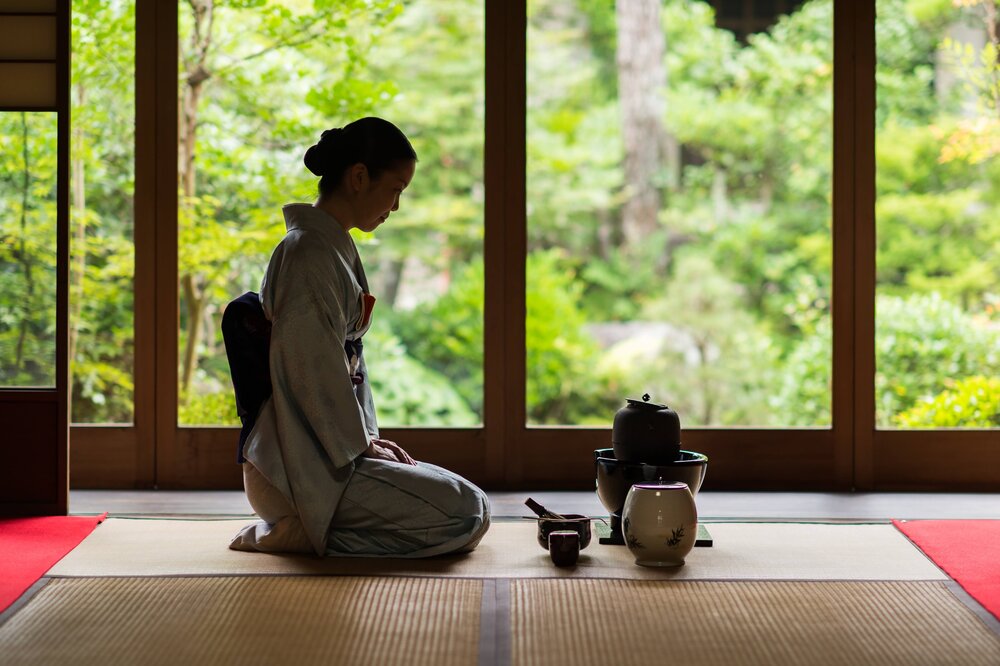If you ask Tokyoites whether they think their city is polite, only a quarter will say yes. Compare that to the impression from tourists: two-thirds of visitors would tell you that Tokyo is impressively well-mannered and, indeed, the Japanese people are quite polite! Why might that be? Here are ten key philosophies, realities, and worldviews to thank. Decide for yourself if Japan’s politeness is real, or just another piece of tradition!
1. Group-focused Identity

Japanese people usually identify themselves as part of certain groups. Students introduce themselves with their grade level and class number. Office workers rely on their business cards. Their company, department, and rank are all printed in black and white. An individual has to be a good example of the organization they represent. The Japanese are polite in part to fit in!
As a single member, honoring the group keeps its position among outside groups stable. If you make your team look good, it can keep going as usual. It shows that you are a good member of your team. So, you get to keep or advance your own rank, too. Since being ostracized from a group removes you from part of your identity, Japanese people do their best to be good group members by being polite.
2. Politeness for Tight Spaces

Japan, especially Tokyo, is famous for cramming a lot into a tiny space! Much of the nation is difficult to inhabit thanks to its mountainous terrain and extreme climate shifts. The spaces where communities can thrive are used up to the very edges. Some apartments in the capital are so small they look like a long hallway with a window at one end and a door at the other.
Buildings are usually not built to last either, so extra money isn’t spent on soundproofing or thick insulation. Few can overlook the tightly packed commuter trains and sardine-like capsule hotels. Surviving in a society that relies so much on the economy of space means it’s especially important to offer tolerance and courtesy to your (very close) neighbors. The Japanese are polite to each other to make it a little easier to live in such close quarters.
You May Also Like: Why Japanese People Don’t Wear Sunglasses
3. …And many faces

Take a look at Scramble Crossing during lunch hour, and you’d never think Japan is suffering from a population problem. On top of space being at a premium, the population density in Tokyo necessitates a neighborly attitude to keep everything moving along smoothly, albeit at its very rushed pace.
From the perspective of a group mentality, the in-group that is the Japanese people is huge! To fit in with such a large and varied set of individuals, the best thing to do is just draw as little attention as possible. This means letting things go when you can and politely joining in the cultural flow. If you want to be polite like the Japanese, try thinking from their point of view- what’s it like to have all these cultures mixing?
4. Cosmopolitanism and being polite

Hundreds of years ago, Japan blocked its culture off to the outside world by closing ports and limiting international trade. Today, however, the Japanese enjoy McDonald’s hamburgers, ramen from China, and delicious tempura with Portuguese origins. To become a more international society, the Japanese have developed a culture of politeness and tolerance towards things seen as “other.”
The Japanese people are traditionally very proud of their culture. Upholding honor is essential, as we can easily see from the way of the Samurai. They believe, in general, that it is important not to act on judgments about another person’s behavior. Instead, keep any negativity private.
This philosophy creates an inviting and understanding atmosphere for visitors, promoting Japanese society as worldly and well-educated. You could say this also makes the Japanese seem very polite!
Read More: Why Japanese People Live Longer
5. “Omoiyari”

Much of what we’ve discussed up to now is especially relevant to the busy capital of Tokyo, where politeness is a practicality more than anything. However, deeper philosophies of politeness are present throughout Japan. “Omoiyari” is spelled with the kanji for “thought” and “send” or “do.” Omoiyari is the Japanese way of saying, “Put yourself in someone else’s shoes.”
Like most civilized peoples, the Japanese learn from a young age the importance of treating others how they would hope to be treated. In an individual-centered Western culture, the emphasis of this philosophy is really on the “put yourself” part of the saying.
In Japan, however, thinking focuses on the state of the other person. It is right to make your own status equal to others’ so that you become one of the many — a part of the group. Someone with a sun hat may take it off to talk to friends standing in the heat without a hat.
It’s not an action to elevate the other person, like giving them the hat, because that would imply that the other person is inferior by not having the hat in the first place. In Japan, politely changing your own behavior to match with others is second nature.
6. “Tatemae” and “Honne” – Politely lying

Tatemae is the word used to describe a person’s outward expression of emotion and opinion. In Japan, not saying your real feelings is considered polite. It’s a way to show respect and dignity to the other person. They might be doing something you don’t like, but what they are doing is not necessarily wrong or bad.
In the West, being up-front about judgments and feelings to give the other person a chance to accommodate is a sign of maturity. It’s assumed that the other person would not do something to bother you if they knew it was bothersome. If you notify them, they will change their behavior. In Japan, it is important not to impose your own thoughts on others, since you don’t have the authority to tell them how to live.
Tatemae lets Japanese people be polite and courteous, even when they might feel differently.
Honne, on the other hand, is the private way of thinking that is saved for only very close friends and family — parts of someone’s inner circle.
The difference protects Japanese people from feeling shame or judgment for being themselves, even as part of a group. It also allows them to vent negative feelings in private, where there won’t be public backlash.
7. Polieness and Strong Social Hierarchy

Keeping up one’s status and image is very important in Japan. Everyone has a rank, and everyone tries to be very aware and diligent about displaying that rank appropriately. Honorific titles like sama, san, and more help show these rankings. It’s polite for Japanese people to use these titles at the end of each other’s names. In general, upholding the rules of your rank helps prevent social faux pas. But, it comes with some downsides too.
There are strict procedures for doing many unimportant-seeming things, like handing out business cards or where members of a meeting sit at a table. These rules ensure no one’s feelings are hurt, and plans can move on smoothly.
As a foreigner and guest in Japan, it’s common to be given a “high” rank just by being outside the circle of Japanese-ness. For certain, this comes off as very polite! Be careful to watch how a company superior treats their junior, though; you might find that it is not such a kind tradition after all.
8. “Shouganai”…Is giving up polite?

Accepting what seems like it cannot be changed or accepting certain disagreeable situations as natural are philosophies in line with Confucianism. Confucianism has had a strong impact in Japan, along with Buddhism’s widespread adoption. In the West, especially in America, many people believe that anything is achievable if you put your mind to it. It is accepted that individuals are responsible for their own choices and destiny.
In many Eastern worldviews, not just Japan, the idea that some things can’t be helped and are nobody’s fault (despite best intentions and efforts) is much more acceptable. Someone might be unlucky just because of the day they were born, for example, and they don’t need to try to remedy that. It’s just the way things are. You may be wondering how this comes out as politeness. If a train is late, it’s much less likely that an employee will be chastised, for example.
Contrast this with a Western boss who might tell the employee they should start leaving home earlier, for just such incidents! The idea of “Shouganai,” meaning, “There’s nothing you can do about it,” has saved the graces of many foreigners in Japan.
The Japanese have an implicit understanding that a foreigner might not know the right way to do things. They are not Japanese, and that can’t be helped, so there is no reason to get angry at them. This Japanese habit of just “letting things go” can seem quite polite when you’ve made a mistake and aren’t getting penalized for it!
You May Also Like: 10 Inspiring Japanese Expressions
9. Humbleness is polite

Where Western society focuses many actions on bringing honor to the self, Japanese society emphasizes honoring the “other.” Honorifics are dropped when company employees talk about their boss to a customer since their boss is more in-group than the customer is, for example.
People generally don’t refer to family members with respectful titles during conversations with others. It would be rude to imply that their own family might be better than the family of the person they’re talking to, especially when nothing is known about that other person’s family.
As a visitor, hosts make great efforts to diminish their own standing and uplift a guest with outstanding service and accommodations. Respect is always focused outside the self. This leads to characteristics of “omotenashi” hospitality from hotels, which feel it is important to express thanks that a guest would choose to stay at their establishment and not one of the many others that might have been better.
In general, being humble is the standard way of thinking in Japan, so the Japanese are very good at making others feel special!
10. Restraint as Virtue

If you think about the ascetic monks and priests who live off of alms, it’s easy to understand how a philosophy of restraint penetrated the Japanese way of life. Buddhist teachings are fairly secularized in Japanese society. Philosophies like the nobility of going without and restraining desires became part of everyday culture.
By not lashing out or acting on a whim, Japanese people are showing their personal strength. Similar ways of thinking in the West get demands met. An example is rioters going on a hunger strike.
In Japan, the idea that the needs won’t be met, and no one expects them to be, is a sign that the person has the capability to put themself very last. This is the most ideal way to live since it completely erases the individual and gives all the honor to the group. If you don’t need or ask for anything, there is no way to cause disharmony.
In this way, Japanese people tend to hold back what they really want or think as a matter of virtue. They don’t want to cause a problem, so they respond politely and attentively to the needs of someone else.
In Summary…
Now, you have learned a little about the practical lifestyle adaptations and philosophical ideas that lead Japanese people to act so politely. Has your opinion changed at all? In the end, Japan’s polite culture comes back to a focused effort to promote harmony for society at large.
Japanese people try not to stand out. If doing that helps their group fare better in the world, they can feel a personal sense of belonging. Japanese people try to keep the peace and honor others with their actions. They are kindly understanding and accepting even when guests behave badly.
Is this way of thinking a little “holier than thou”? Or, is it genuinely nice for society to be so willing to put up with things they have a problem with? Visit Japan and experience our politeness for yourself. You’ll see just how much the culture makes it a great place to be!
To get more information about Japanese culture, you can also read these 20 things not to do in Japan.










